Occupations Name with Necessary Vocabulary Note & Image
Occupations Or Professions
Occupation
Occupation / ˌɑːkjuˈpeɪʃn / (ˌআঃকিউˈপেইশ্ন্) n [a job or and/or a regular activity or hobby] (ব্যবসা, বাণিজ্য ইত্যাদি অথবা বৃত্তি, পেশা, অবসরকালীন কাজ <যে পেশায় অল্প শিক্ষা বা শিক্ষা না হলেও চলে>): Please state your name, age and occupation below. It seems to me his favorite occupation is eating. His main occupation seems to be shopping.
Occupation Related Necessary Vocabulary Notes
Ø Job / dʒɑːb / (জাঃব্) n [the regular work which a person does to earn money] (কাজ; চাকরি): He took a job as a waitress.
Ø Hobby / ˈhɑːbi / (ˈহাঃবি) n [an activity which someone does for pleaser when they are not working] (শখ <সাধ. অবসর বিনোদনমূলক কাজ>): Do you have any hobbies?
Ø State / steɪt / (স্টেইট্) v [to formally write or say Sth, especially in a careful and clear way] (সঠিক ও নিরভুল ভাবে লেখা): Please state why you wish to apply for this grant.
Barber
Barber / ˈbɑːrbər / (ˈবাঃর্বএর্) n [a barber is a person whose occupation is mainly to cut, groom, hairstyles and shave men’s beard. A barber’s place of work is known as a “barbershop” or a “barber’s”.] (নাপিত; নরসুন্দর; ক্ষৌরকার): A barber needs to be good eyesight.
Snake Charmer
Snake charmer / ˈsneɪk ˈtʃɑːrmər / (ˈছেনেইক্ ˈচাঃর্মএর্) n [an entertainer who seems to be able to control snake by the practice of pretending to hypnotize a snake by playing an instrument called pungi] (সাপুড়ে; বেদে): Snake charmer appears to make snakes move playing music.
Ø Entertainer / ˌentərˈteɪnər / (ˌএনটএরˈটেইনএর্) n [a person whose job is amusing or interesting people, for example, by singing, telling jokes or dancing] (পেশাদার আনন্দদানকারী): a street entertainer
Ø Seem / siːm / (ছীম্) v [to give the impression of being or doing Sth] (মনে/বোধ হওয়া): You seem happy. He seems a nice man.
<SYN> Appear
Ø Pretend / prɪˈtend / (প্রিˈটেনড্) v {Pt. Pp. pretended / prɪˈtendɪd / (প্রিˈটেনডিড্)} [to behave as if something is true when you know that it is not, especially in order to deceive people or as a game] (ভান করা বা ছল করা): I pretended not to notice.
Ø Hypnosis / ˈhɪpnoʊsɪs / (ˈহিপনৌছিছ্) n [a mental state like sleep, in which a person’s thoughts can be easily influenced by someone else] (গভীর নিন্দ্রা সদৃশ অবস্থ – এ অবস্থায় এক ব্যক্তির কার্যকলাপ অন্য ব্যক্তি নিয়ন্ত্রণ করতে পারে; সম্মোহন; সংবেশ): He only remembered details of the accident under hypnosis.
<VERB> Hypnotize / hɪpˈnətaɪz / (হিˈপ্নএটাইজ্) v [to produce a state of hypnosis in Sb] (<কাউকে> সম্মোহিত/সংবিষ্ট করা): He agreed to be hypnotized to try to remember what had happened.
Ø Instrument / ˈɪnstəmənt / (ˈইন্ছট্রএমএন্ট্) n {Also. Musical instrument} [an object, such as piano, guitar or drum, which is played to produce musical sounds] (বাদ্যযন্ত্র): Which instrument do you play?
 |
| Pungi |
Ø Pungi / pʌŋgiː / (পাঙ্গী) n [the pungi also called the been, is a wind instrument played by snake charmers on the Indian subcontinent. It consists of a mouth-blown air reservoir made from a gourd] (বীন): The pungi was originally developed as an Indian folk instrument.
Cobbler
Cobbler / ˈkɑːblər / (ˈকাঃব্লএর্) n {Also. Shoemaker} [a person who mends shoes as a job] (মুচি; জুতো মেরামতকারী): Cobbler makes and repairs all types of shoes.
Ø Mend / mend / (মেন্ড্) v {Pt. Pp. mended / mendɪd / (মেনডিড্)} [to repair Sth that has been damaged or broken so that it can be used again] (মেরামত করা): The plumber came to mend the burst pipe.
Bricklayer
Bricklayer / ˈbrɪkleɪər / (ˈব্রিক্লেইএর্) n [a bricklayer, which is related to but different from a Mason, is a craftsman who lays bricks to construct brickwork. His job mainly the construction and repair of buildings made of bricks and similar materials] (রাজমিস্ত্রি; ইঁটমিস্ত্রী):
Ø Relate / rɪˈleɪt / (রিˈলেইট্) v {Pt. Pp. related / rɪˈleɪtɪd / (রিˈলেইটিড্)} [to find or show the connection between two or more things] (সম্বন্ধ থাকা): I found it difficult to relate the two ideas in my mind.
<SYN> Connect
 |
| Mason |
Mason / ˈmeɪsn / (ˈমেইছন্) n [a person who using stone, or works with stone or cuts stone] (যে মিস্ত্রি পাথরের নির্মাণ কাজ করে; পাথরমিস্ত্রি/পাথর কর্তনকারী):
Ø Craftsman / ˈkræftsmən / (ˈক্র্যাফ্টছমএন্) n [a skilled person, especially one who makes beautiful things by hand] (কারিগর; শ্রমশিল্পী): The plates are hand painted by our finest craftsman.
Ø Lay / leɪ / (লেই) v {Pt. Pp. laid / leɪd / (লেইড্)} [to put something in especially a flat or horizontal position, usually carefully or gently] (রাখা; স্থাপন করা; বিছানো; <ইট> গাঁথা): The foundations of the house are being laid today.
Ø Brickwork / ˈbrɪkwɜːrk / (ˈব্রিক্ওয়ার্ক্) n [the bricks in a wall, building, etc.] (ইটের গাঁথনি; ইটের কাজ):
<NOUN> Brickworks [a place where bricks are made] (ইটের ভাটা):
Plumber
Plumber / ˈplʌmər / (ˈপ্লামএর্) n [a person whose job is to fit and repair water pipes, baths, toilets, etc.] (পানিরমিস্ত্রি; সীসাকার): When is the plumber coming to repair the bust pipe?
Ø Fit / fɪt / (ফিট্) v {Pt. Pp. fitted / fɪtɪd / (ফিটিড্)} [to put or join Sth in the right place] (যথা স্থানে লাগানো বা বসানো): He has been fitted with an artificial leg.
Waiter
Waiter / ˈweɪtər / (ˈওয়েইটএর্) n {Fem. Waitress / ˈweɪtərəs / (ˈওয়েইট্রএছ্)} [a person whose job is to serve the food to customers at their tables in a restaurant, etc.] (<রেস্তোরার> মেছিয়ার<যে খাবার পরিবেশন করে>): I’ll ask the waiter for the bill.
Ø Serve / sɜːrv / (ছা্র্ভ্) v {Pt. Pp. served / sɜːrvd / (ছা্র্ভড্)} [to give Sb food or drink, for example at a restaurant or during a meal] (<খাবার> পরিবেশন করা): Please serve the lamb with new potatoes and green beans.
Steward
Steward / ˈstuːərd / (ˈস্টূএর্ড্) n {Fem. Stewardess / ˈstuːərdəs / (ˈস্টূএর্ডএছ্)} [a man whose job is to take care of passengers on a ship, an aircraft or a train and who brings them meals, etc.] (যে ব্যক্তি বিমান বা জাহাজের যাত্রীদের দেখাশোনা ও খাদ্যদ্রব্য পরিবেশন করে; গোমস্তা; যাত্রীসেবক; স্টূয়ার্ড): a ship’s stewardess
Weaver
Weaver / ˈwiːvər / (ˈউঈবএর্) n [weavers weave yarn, fibers, and other raw materials into cloth or other textiles and produce various woven fabrics on a craft loom] (তাঁতী): |
| Yarn |
Ø Craft / kræft / (ক্র্যাফ্ট্) n [an activity involving a special skill at making things with your hands] (দক্ষতা-নির্ভর পেশা; শিল্প-কৌশল): The craft of furniture making
Ø Loom / luːm / (লূম্) n [a machine for making cloth by twisting threads between other threads which go in a different direction] (তাঁত; বয়নযন্ত্র):
Ø Cook / kʊk / (কুক্) n [someone who cooks food or whose job is cooking] (বাবুর্চি; রাঁধুনি): She was employed as a cook in a hotel.
Chef
Chef / ʃef / (শেফ্) n [a chef is a highly trained and skilled professional cook who is proficient in all aspects of food preparation of a particular cuisine, especially the most senior cook in a restaurant, hotel, etc.] (পাচক; <হোটেল, রেস্তোরাঁ ইত্যাদির> প্রধান বাবুর্চি): He is one of the top chefs in the Britain. |
| Cook |
Ø Proficient / prəˈfɪʃnt / (প্রএˈফিশ্ন্ট্) adj [able to do Sth well because of training and practice] (দক্ষ; কুশলী; নিপুন; খ্যাতনামা): She is proficient in two languages.
Ø Aspect / ˈæspekt / (ˈএ্যাছপেক্ট্) n [one part of a situation, problem, subject, etc.] (বিশেষ অংশ; দিক): His illness affects almost every aspect of his life.
Ø Cuisine / kwɪˈziːn / (কুইˈজীন্) n [a style of cooking] (রান্না বা রান্নার পদ্ধতিবিশেষ): We sampled the local cuisine.
Ø Restaurant / ˈrestərɑːnt / (ˈরেছটএরাঃন্ট্) n [a place where you can buy and eat a meal] (<যেখানে খাওয়া যায় এবং খাবার কেনা যায়> রেস্তোরাঁ; রেস্টুরেন্ট): We had a meal in a restaurant.
Ø Hotel / hoʊˈtel / (হৌˈটেল্) n [a building where you pay to have a room to sleep in, and where you can eat meals] (<যেখানে খাওয়া ও থাকা যায়> আবাসিক হোটেল; উত্তরণশাল; পান্থশালা): We stayed in/at a two-star hotel on the seafront.
Cultivator
Cultivator / ˈkʌltɪveɪtər / (ˈকালটিভেইটএর্) n [a person who cultivates (=grows crops on) the land] (চাষী; কৃষিজীবী):
Ø Cultivate / ˈkʌltɪveɪt / (ˈকালটিভেইট্) v {Pt. Pp. cultivated / ˈkʌltɪveɪtɪd / (ˈকালটিভেইটিড্)} [to prepare the land to grow crops on it, or to grow a particular crop] (চাষ করা; আবাদ করা): The land around here has never been cultivated.
Farmer
Farmer / ˈfɑːrmər / (ˈফাঃর্মএর্) n [someone who owns or takes care of a farm] (কৃষক্; জোতদার; খামারী): a dairy/sheep farmer
Ø Farm / ˈfɑːrm / (ˈফাঃর্ম) n [an area of land, together with a house and building, used for growing crops and/ or keeping animals as a business] (খামার): a dairy/animals farm
Peasant
Peasant / ˈpeznt / (ˈপেজন্ট্) n [a poor farmer of low social status who owns or rents a small piece of land for cultivation] (বর্গাচাষী; প্রান্তিকচাষী): Most of the produce sold in the market is grown by peasant farmers.
Potter
Potter / ˈpɑːtər / (ˈপাঃটএর্) n [a person who makes cooking utensils and other objects from clay, usually by hand on a special wheel] (কুমোর; কুম্ভকার):
Coachman
Coachman / ˈkoʊtʃmən / (ˈকৌচ্মএন্) n [a man who drives a coach pulled by horses] (<চারচাকার ঘোড়ার গাড়ির> চালক বা কোচোয়ান):
Ø Coach / koʊtʃ / (কৌচ্) n [a large closed vehicle with four wheels, pulled by horses, used for carrying passengers] (ঘোড়ায় টানা চার চাকার গাড়ি):
Carter
Carter / kɑːrtər / (কাঃর্টএর্) n [a person who drives a cart] (<দুই চাকার ঘোড়া বা গরুর গাড়ির> চালক/ গাড়োয়ান):
Ø Cart / kɑːrt / (কাঃর্ট) n [an open vehicle with two or four wheels, typically used for carrying loads and pulled by horse or cattle] (<দুচাকার>গোরু/ ঘোড়ার গাড়ি):
Fisherman
Fisherman / ˈfɪʃərmən / (ˈফিশএরমএন্) n [a fisherman or fisher involves in catching fishes from a ship, trawler, or fishing boat at sea, or on inland<আভ্যন্তর> waters. They can work alone or together with others. He sells fish to fish shops producing frozen fish private or individuals] (জেলে; ধীবর; মৎস্যজীবী):
Ø Involve / ɪnˈvɑːlv / (ইনˈভাঃল্ভ্) v {Pt. Pp. involved / ɪnˈvɑːlvd / (ইনˈভাঃল্ভড্)} [to make Sb take part in Sth] (জড়িত করা; জড়ান): She has been involved with animal rights for many years.
Ø Trawler / ˈtrɔːlər / (ˈট্রোলএর্) n [a fishing boat that uses large nets that it drags through the sea behind it] (বড় জাল বহন কারী মাছ ধরা নৌকা):
Fishmonger
Fishmonger / ˈfɪʃmʌŋgər / (ˈফিশ্মাঙ্গএর্) n [someone who sells fish, especially from a shop] (মাছবিক্রেতা):
Angler
Angler / ˈæŋglər / (ˈএ্যাঙগ্লএর্) n [a person who catches fish (goes angling) as a hobby] (সৌখিন মৎস্য শিকারী):
Ø Angle / ˈæŋgl / (ˈএ্যাঙ্গল্) v [to catch fish with a line and hook] (ছিপদিয়ে মাছ ধরা):
Charwoman
Charwoman / ˈtʃɑːrwʊmən / (চাঃরউউমএন্) n {Also. charlady} [a woman whose job is to clean and tidy a private house or an office etc.] (ঠিকা-ঝি; ঠিকা কাজ করা মহিলা):
Ø Char / ˈtʃɑːr / (ˈচাঃর) v [to clean and tidy a house or office for payment] (ঠিকা কাজ করা):
Laundryman
Laundryman / ˈlɔːndrimən / (ˈলোনড্রিমএন্) n [a man whose job is to wash, dry and iron clothes, etc.] (ধোপা):
Ø Laundry / ˈlɔːndri / (ˈলোনড্রি) n 1. [clothes, sheets, etc. that need washing, that are being washed, or that have been washed recently] (নোংরা কাপড় চোপড় যা ধোয়ার জন্য বা ধোয়া হচ্ছে বা ধোয়া হয়েছে): The housekeeper cooks, does the laundry and cleans.
2. Laundry / ˈlɔːndri / (ˈলোনড্রি) n [a business or place which washes clothes, sheets, etc. for customers] (<কাপড় চোপড় ধোয়া ও ইস্ত্রি করার>দোকান):
 |
| Iron |
Ø Iron / ˈaɪərn / (ˈআইএরন্) n [a tool with a flat metal base that can be heated and used to make clothes smooth] (ইস্ত্রি): a steam iron
<VERB> [to make clothes, etc. smooth or flat by using an iron] (ইস্ত্রি করা): I will need to iron that dress before I can wear it.
Housekeeper
Housekeeper / ˈhaʊskiːpər / (ˈহাউছকীপএর্) n [a person, usually a woman, whose job is to manage the shopping, cooking, cleaning, etc. in a house or an institution] (গৃহভৃত্ত; সংসারের কাজকর্ম দেখাশোনার জন্য নিযুক্ত ব্যাক্তি):
Concierge
Concierge / kɑːnsiˈerʒ / n
(কাঃন্সিএরজ্) [a hotel employee whose job is to help guests by
booking tours, making theatre and restaurant reservations, local places to see,
etc.] (আবাসিক হোটলের
তথ্য বিষায়ক কর্মচারী):
Smith
Smith / smɪθ / (স্মিথ্) n [the job of a Smith is to manufacture metal parts by forging, i. e. the part to be worked is first heated to make it softer and then it is shaped by hammering and bending] (মিস্ত্রি; কর্মকার):
Compare: goldsmith; gunsmith; locksmith; silversmith
Ø Forge / fɔːrdʒ / (ফোর্জ্) v [to shape metal by heating it in a fire and hitting it with a hammer; to make an object in this way] (তাপ প্রয়োগ করে পিটিয়ে তৈরি করা; গড়া):
Blacksmith
Blacksmith / ˈblæksmɪθ / (ˈব্ল্যাকস্মিথ্) n [a person whose job is to make and repair things made of iron, especially horseshoes] (কামার; লৌহকার):
Jeweler
Jeweler/ ˈdʒuːələr / (ˈজূএলএর্) n [the task of the jeweler is to design, make, repair, and sell jewelry, gems, and similar decorative objects. Some may specialize in making and designing while others may work in retail business selling jewelry] (জহুরি; মণিকার; অলঙ্কার প্রস্তুকারী; রত্নবিক্রেতা): I bought it at the jeweler’s near my office.
Ø Task / tæsk / (ট্যাস্ক্) n [a piece of work to be done, especially one done regularly, unwillingly, or with difficulty] (কাজ, বিশেষত শক্ত কাজ): It was my task to wake everyone up in the morning.
Hawker
Hawker / ˈhɔːkər / (ˈহোকএর্) n [a hawker is a vendor of merchandise that can be easily transported; the term is roughly synonymous with the peddler. They make money by hawking goods] (ফেরিওয়ালা):
Ø Merchandise / ˈmɜːrtʃəndaɪz / (ˈমা্র্চএনডাইজ্) n [goods that are bought or sold; goods that are for sale in a shop/store] (পন্যদ্রব্য): Shoppers complained about poor quality merchandise and high prices.
Ø Make / meɪk / (মেইক্) v [to earn or gain money] (<অর্থ> উপর্জন করা): We need to think of ways to make money.
Vendor
Vendor / ˈvendər / (ˈভেন্ডএর্) n [a person who sells things, for example, food or newspapers, usually outside on the street] (<রাস্তার ধারে বসে খাদ্য, ফল ইত্যা> বিক্রেতা): For the past few months she’s been working as a street vendor, selling fruits and veg (=vegetables).
Rickshaw Driver
Rickshaw driver / ˈrɪkʃɔː ˈdraɪvər / (ˈরিক্শো ˈড্রাইভএর্) n [who drives rickshaw or cycle rickshaw] (রিক্সা চালক):
Ø Rickshaw / ˈrɪkʃɔː / (ˈরিক্শো) n [a small light vehicle with two wheels used in some Asian countries to passenger] (রিক্শা): The rickshaw is pulled by Sb walking or riding a bicycle.
Ø Cycle-rickshaw / ˈsaɪkl -ˈrɪkʃɔː / (ছাইকল্-ˈরিক্শো) n [a light vehicle like a bicycle with three wheels, with a covered seat for passengers behind the rickshaw driver, used especially in some Asian countries] (সাইকেল-রিক্শা; তিনচক্রযান):
Grocer
Grocer / ˈgroʊsər / (ˈগ্রৌছএর্) n [a person who owns, manages or works in a shop/store selling food and other small household goods] (মুদি; মুদি ব্যবসা):
<NOUN> grocery // (গ্রৌছএরি) n {USA. Grocery store} [a shop/store that sells food and other things used in the home] (মুদিখানা; মুদি দোকান):
Stationer
Stationer / ˈsteɪʃənər / (ˈস্টেইশএনএর্) n [a person who owns or manage a store selling (stationery) paper, and other writing and office materials] (<লেখাজোখার বা অফিসের জিনিসপত্র ও এতদসংক্রান্ত দ্রব্যাদের> বিক্রেতা/ব্যবসায়ি):
Merchant
Merchant / ˈmɜːrtʃənt / (ˈমা্র্চএন্ট্) n [a person who buys and sells goods in large quantities, especially one who imports and exports goods] (বনিক<বিশেষত বৈদেশিক বানিজ্যের>; সওদাগর): Venice was once a city of rice merchants.
Trader
Trader / ˈtreɪdər / (ˈট্রেইডএর্) n [a person who buys and sells things as a job] (বানিয়া<যে কেনাবেচার ব্যবসা করে>): His father is a market trader, selling fruit and vegetables.
Businessman
Businessman / ˈbɪznəsmæn / (ˈবিজনএছম্যান্) n [a person who works in business, especially at a high level] (<বড় স্তরের> ব্যবসায়ী/ কারবারি):
Moneylender
Moneylender / ˈmʌnilendər / (ˈমানিলেন্ডএর্) n [a person whose business is lending money, usually at a very high rate of interest] (মহাজন; কুসীদজীবী): Families with money problems often fall into the hands of the moneylenders and get further into debt.
Ø Lend / lend / (লেন্ড্) v {Pt. Pp. lent / lent / (লেন্ট্)} [(of a bank) to give money to Sb on condition that they pay it back over a period of time and pay interest on it] (ঋণ দেওয়া; ধার দেওয়া): The bank refused to lend the money to us.
Baker
Baker / ˈbeɪkər / (ˈবেইকএর্) n [a baker is someone who bakes and something sells bread and other products made using an oven or another concentrated heat source. The place where a baker works is called a bakery] (<পাউরুটি ও বিস্কুট> ওয়ালা/ বিক্রেতা/ প্রস্তুতকারক; নানবাই):
Ø Bake / beɪk / (বেইক্) v {Pt. Pp. baked / beɪkt / (বেইক্ট্)} [to cook food in an oven without extra fat or liquid; to be cooked in this way] (<রুটি ইত্যাদি বন্ধ উনুনে> সেকা/ ঝলসানো): I made the icing while the cake was baking.
Tanner
Tanner / ˈtænər / (ˈট্যানএর্) n [a person whose job is to tan the animal hide of all kinds in physical/chemical as well as mechanical ways to make leather] (চর্ম/চামরা – ব্যবসায়ী; চামার):
Ø Tan / tæn / (ট্যান্) v {Pt. Pp. tanned / tænd / (ট্যান্ড্)} [to make animals skin into leather by treating it with chemicals] (চামড়া পাকা করা):
<NOUN> Tannery / ˈtænəri / (ˈট্যানএরি) n [a place where animal’s skins are tanned and made into leather] (চামড়া পাকা করার কারখানা):
<NOUN> Tannery / ˈtænəri / (ˈট্যানএরি) n [a place where animal’s skins are tanned and made into leather] (চামড়া পাকা করার কারখানা):
Ø Hide / haɪd / (হাইড্) n [an animal’s strong thick skin; especially when it is bought or sold or used for leather] (<পশুর খোলা> চামড়া; অজিন): boots made from buffalo hide
Tailor
Tailor / ˈteɪlər / (ˈটেইলএর্) n [the job of a tailor or dressmaker to repair, make and make changes to clothes] (দরজী; খলিফা):
Porter
Porter / ˈpɔːrtər / (ˈপোর্টএর্) n [a person whose job is carrying people’s bags and other loads, especially at a train station, an airport or in a hotel] (কুলি; মুটে): There aren’t any porters, so we’ll have to find a trolley for the luggage.
Labourer
Labourer / ˈleɪbərər / (ˈলেইবএরএর্) n {USA laborer} [a person whose job involves hard physical work that is not skilled, especially work that is done outdoors for wages] (কামলা; দিনমজুর; কৃষাণ):
Ø Wage / weɪdʒ / (ওয়েইজ্) n [a regular amount of money that you earn, usually every week, for work or services] (বেতন; মজুরি): Wage is paid on Fridays.
Labour
Labour / ˈleɪbər / (ˈলেইবএর্) n {US labor} [the people who work or are available for work in a country or company] (<কারখানায় কাজ করা দক্ষ>শ্রমিক বা শ্রমিকগণ): Repairs involves skilled labour, which can be expensive.
Doorkeeper
Doorkeeper / ˈdɔːrkiːpər / (ˈডোরকীপএর্) n [a person who guards the entrance to a large building, especially to check on people going in] (দ্বাররক্ষী; দারোয়ান; দ্বাররক্ষক):
Ø Entrance / ˈentrəns / (ˈএনট্রএনছ্) n [a door, gate, etc. by which you can enter a building or place] (ফটক; প্রবেশদ্বার): There are two entrances one at the front and one round the back.
Guard
Guard / gɑːrd / (গাঃর্ড্) n [a person, such as a soldier, a police officer or a prison officer, who protects a place or people, or prevents prisoners from escaping] (প্রহরারত সৈনিক বা সৈনিকের দল; প্রহরী; পাহারাদার): Armed guards are posted around the site. The frontier is patrolled by border guards.
Ø Escape / ɪˈskeɪp / (ইˈছকেইপ্) v {Pt. Pp. escaped / ɪˈskeɪpt / (ইˈছকেইপ্ট্)} [to get away from a place where you have been kept as a prisoner or not allowed to leave] (পালিয়ে যাওয়া): A lion has escaped from its cage.
Ø Post / poʊst / (পৌছ্ট্) v [to send Sb to a place for a period of time as part of their job] (<চৌকিতে/প্রহরায়> নিযুক্ত করা; কর্তব্যস্থলে/ফাঁড়িতে/ঘাঁটিতে পাঠানো): He has been posted to Pakistan for six months.
Ø Site / saɪt / (ছাইট্) n [a place where something is was or will be built, or where something happened, is happening, or will happen] (স্থান; জায়গা; কোনোকিছুর নির্ধারিত স্থান): A site has been chosen for the new school.
Ø Frontier / frʌnˈtɪr / (ফ্রান্ˈটিএর্) n [a line that separates two countries, etc. the land near this line] (সীমান্ত): Nepal has frontiers with both India and China.
<SYN> Border
Ø Patrol / pəˈtroʊl / (পএˈট্রৌল্) v {Pt. Pp. patrolled // (পএট্রৌল্ড্)} [to go around an area or a building at regular times to check that it is safe and that there is no trouble] (<শহর বা সড়ক প্রদক্ষিণ করে সবকিছু ঠিক আছে কিনা> পর্যবেক্ষণ করা): A security guard with a dog patrols the building site at night.
Security Guard
Security guard / sɪˈkjʊrəti gɑːrd / (ছিˈকুউরএটি গাঃর্ড্) n [someone whose job involves preventing people going into place without permission, taking and bringing money, or protecting goods from being stolen] (নিরাপত্তা রক্ষী):
Sentry
Sentry / ˈsentri / (ˈছেনট্রি) n [a soldier whose job is to guard or to control access to a place] (প্রহরারত সৈনিক; রক্ষী; শান্ত্রী): People approaching the gate were challenged by the sentry.
Watchman
Watchman / ˈwɑːtʃmən / (ˈওআঃচমএন্) n [a man whose job is to guard a building, for example, a bank, an office building or a factory] (চোকিদার; <ব্যাংক, বিল্ডিং ইত্যা> পাহারাদার):
Ø Nightwatchman / naɪt ˈwɑːtʃmən / (নাইট্- ওআঃচমএন্) n [a man whose job to guard a building such as a factory at night] (নৈশপ্রহরী):
Watchmaker
Watchmaker / ˈwɑːtʃmeɪkər / (ওআঃচমেইকএর্) n [a watchmaker is an artisan who makes and repairs watches and clocks as a job] (ঘড়ি মেরামত কারী): A majority of watches are now factory made, most modern watchmakers only repairs watches.
Carpenter
Carpenter / ˈkɑːrpəntər / (ˈকাঃর্পএনটএর্) n [a carpenter task is to make, repair, and maintain wooden constructions and their component parts] (কাঠমিস্ত্রি; ছুতার; সূত্রধর):
Ø Component / kəmˈpoʊnənt / (কএমˈপৌনএন্ট্) n [a part which combines with other parts to form something bigger] (গঠনে সহায়তাকারী অন্যতম উপাদান বা অংশ; উপাংশ): The factory supplies electrical components for cars. Trust is a vital component of any relationship.
Ø Part / pɑːrt / (পাঃর্ট্) n [a piece of a machine or structure] (অংশ; খণ্ড): the working parts of the machinery. Spare parts
Mechanic
Mechanic / məˈkænɪk / (মএˈক্যানিক্) n [someone whose job is repairing the engines of vehicles and other machines] (যন্ত্রী; <মটর> মিস্ত্রি): a car/garage/motor mechanic
Artisan
Artisan / ˈɑːrtəzn / (ˈআঃর্টএজ্ন্) n [an artisan is a skilled worker who makes or creates things by hand that may be functional or strictly decorative, for example, furniture, decorative arts, sculptures, clothing, jeweler, household items and tools or even mechanical mechanisms such as handmade clockwork movement of a watchmaker] (<শিল্পে বা বাণিজ্যে কর্মরত> দক্ষকারিগর): The hand-woven textiles were made by skilled local artisans.
<SYN> Craftsman
Ø Functional / ˈfʌŋkʃənl / (ˈফাঙক্শএন্ল্) n [designed to be practical and useful rather than attractive] (প্রায়োগিক; ব্যবহারিক): The office was large and functional rather than welcoming.
Ø Sculpture / ˈskʌlptʃər / (ˈস্কালপ্চএর্) n [the art of forming solid objects that represent a thing, person, idea, etc. out of a material such as wood, clay, metal or stone, or an object made in this way] (ভাস্কর্য; মূর্তি): He collects modern sculpture.
Ø Clockwork / ˈklɑːkwɜːrk / (ˈক্লাঃক্ওয়ার্ক্) n [machinery with wheels and springs like that inside a clock] (ঘড়ির ন্যায় কলকব্জা-বিশিষ্ট): clockwork toys (=toys that you wind up with a key)
Painter
Painter / ˈpeɪntər / (ˈপেইন্টএর্) n [a person whose job is painting buildings, walls, etc.] (রংঙের মিস্ত্রি): He now works as a painter and decorator.
Boatman
Boatman / ˈboʊtmən / (ˈবৌট্মএন্) n [a man who earns money from small boats, either by carrying passengers or goods on them or by renting them out] (মাঝি):
Sailor
Sailor / ˈseɪlər / (ˈছেইলএর্) n [a sailor, seaman, mariner, or seafarer is a person who navigates water-borne vessels or assists as a crewmember in their operation and maintenance] (নাবিক; নৌজীবী):
Ø Navigate / ˈnævɪgeɪt / (ˈন্যাভিগেইট্) v [to direct the way that a ship, aircraft, etc. will travel, or to find a direction across, along or over an area of water or land, often by using a map] (মানচিত্র ও যন্ত্রপাতির সাহায্যে জাহাজের বা বিমানের যাত্রাপথ বা অবস্থান নির্ণয় করা): Sailor has special equipment to help them navigate.
Ø Waterborne / ˈwɔːtərbɔːrn / (ˈওয়াটএরবোর্ন্) adj [traveling on, or involving travel or transportation on water] (জলে ভাসমান/জলবাহিত): waterborne goods
Ø Assist / əˈsɪst / (এˈছিস্ট্) v {Pt. Pp. assisted / əˈsɪstɪd / (এˈছিস্টিড্)} [to help Sb to do Sth] (সাহায্য/সহায়তা করা): The army arrived to assist in the search.
Driver
Driver / ˈdraɪvər / (ˈড্রাইভএর্) n [someone who drives a vehicle] (গাড়ি-চালক): The accident was the other driver’s fault.
Diver
Diver / ˈdaɪvər / (ˈডাইভএর্) n [the diver is responsible for the searching for individuals and objects underwater, carrying out checks of waterworks facilities or other large objects, sunken ships, etc.] (ডুবুরি): He was a diver on a North Sea Oil rig.
Ø Waterworks / ˈwɔːtərwɜːrks / (ˈওয়াটএরবোর্ন্) n [a building with machinery for supplying water to an area] (পানি সরবরাহের জন্য নির্মিত সংরক্ষনাগার, সরবরাহ লাইন ইত্যাদি):
Ø Sunken / ˈsʌŋkən / (ˈছাঙকএন্) adj [that has fallen to the bottom of the sea or the ocean, or of a lake or river] (নিমজ্জিত; ডুবন্ত): They are diving for sunken treasure. A sunken ship
<SYN> Submerged
Miner
Miner / ˈmaɪnər / (ˈমাইনএর্) n [a person who works in a mine taking out coal, gold, diamonds, etc.] (খনি-শ্রমিক): a coal miner
Ø Mine / ˈmaɪn / (ˈমাইন্) n [a deep hole or system of holes in the ground made for the removal of substances such as coal, metal, and salt by digging] (খনি; আকর):
Pilot
Pilot / ˈpaɪlət / (ˈপাইলএট্) n [an aircraft pilot or aviator is a person who actively and directly operates the directional flight controls of an aircraft while it is in flight, especially as a job] (বিমানচালক): The accident was caused by pilot error.
Ø Aircraft / ˈerkræft / (ˈএএর্ক্র্যাফ্ট্) n [any vehicle that can fly and carry goods or passengers such as a plane or helicopter] (উরোজাহাজ; বিমান; বিমানপোত): He claimed that aircraft noise was the worst form of air pollution in London. Fighter/transport/military aircraft
Ø Aviator / ˈeɪvieɪtər / (ˈএইভিএইটএর্) n [a person who flies an aircraft] (বৈমানিক): “Amy Johnson was a pioneering woman aviator who made record-breaking flights to Australia and South Africa in
the 1930s.”
the 1930s.”
Ø Operate / ˈɑːpəreɪt / (ˈআঃপএরেইট) n {Pt. Pp. operated / ˈɑːpəreɪtɪd / (ˈআঃপএরেইটিড্)} [to use or control a machine or make it work] (চালানো): What skills are needed to operate this machinery?
Ø Directional / dəˈrekʃənl / (ডএˈরেক্শএন্ল্) n [producing or receiving signals, sound, etc. better in one particular direction] (বেতার তরঙ্গ কোনদিক থেকে আসছে তা নিরূপন সংক্রান্ত):
Cowboy
Cowboy / ˈkaʊbɔɪ / (ˈকাউবয়) n {Also. Cowherd} [a man who rides a horse and whose job is to take care of cattle] (রাখাল): The children were playing cowboys and Indians in the garden.
Ø Ride / raɪd / (রাইড্) v {Pt. rode / roʊd / (রৌড্); Pp. ridden / rɪdn / (রিড্ন্)} [to sit on a horse or a bicycle, and control it as it moves] (ঘোড়ায় বা সাইকেলে চড়ে এগিয়ে চলা): I ride to work on my bicycle.
Milkman
Milkman / ˈmɪlkmən / (ˈমিল্কমএন্) n [a person whose job is to deliver milk to customers in the early morning] (গোয়ালা): Britain is one of the few countries where milk is delivered daily to the doorstep by a milkman.
Shepherd
Shepherd / ˈʃepərd / (ˈশেপএর্ড্) n [a shepherd specializes in taking care of, and breeding, different types of sheep] (মেষ-পালক; মেষের রাখাল বা ভেড়া পালক): a shepherd boy
Goatherd
Goatherd / ˈgoʊthɜːrd / (ˈগৌটহা্র্ড্) n [a person whose job is to take care of a group of goats] (ছাগলপালক):
Butcher
Butcher / ˈbʊtʃər / (ˈবুচএর্) n [a butcher is a person who may slaughter animals, dress their flesh, sell their meat or do any combination of these three tasks] (কসাই; মাংস বিক্রেতা):
Ø Butcher’s / ˈbʊtʃərz / (ˈবুচএরজ্) n [a shop/store that sells meat] (মাংসের দোকান): He owns the butcher’s in the main street.
 |
| Slaughter |
Ø Slaughter / ˈslɔːtər / (ˈস্লোটএর্) v [to kill an animal, usually for its flesh] (জবাই করা): The animals are slaughtered in a slaughterhouse.
<SYN> Butcher
Ø Dress / dres / (ড্রেছ্) v [to prepare meat, chicken, fish, and especially crab so it can be eaten] (<রান্নার জন্য> প্রস্তুত করা): to dress a salad (=put oil or vinegar, etc. on it)
Ø Flesh / fleʃ / (ফ্লেশ্) n [the soft part of the body of a person or animal which is between the skin and the bones or soft inside part of a fruit or vegetable] (<প্রাণীদেহের>মাংস/কাঁচা মাংস; ফলের বা সব্জির মাংসাল অংশ): Tigers are flesh-eating animals. The flesh of the fruit is white.
Groom
Groom / gruːm / (গ্রূম্) n {also. Stableman} [a person whose job is to feed and take care of horses, especially by brushing and cleaning them] (অশ্ব-পালক; সহিস; যে ব্যক্তি ঘোড়ার দেখাশোনা করে):
Oilman
Oilman / ˈɔɪlmæn / (ˈঅয়লম্যান) n [a man who makes edible oil from mustard and other seeds, to sell] (তেলী; তৈল বিক্রেতা; কলু):
Ø Edible / ˈedəbl / (ˈএডএবল্) adj [suitable or safe for eating] (খাবার; ভোজ্য): The vegetables were old but still looked edible.
Beekeeper
Beekeeper / biː-ˈkiːpər / (বী-ˈকীপএর্) n [a beekeeper is a person who keeps colonies of honey bees and harvests the honey and other products from them such as honey, beeswax, and royal jelly, while some beekeepers also raise queens and bees to sell to other farmers] (মধু-মাছি পালক; মৌয়াল):
Ø Colony / ˈkɑːləni / (ˈকাঃলএনি) n [a group of animals, insects or plants of the same type that live together or grow in the same place] (<একত্রে বসবাসকারী পশুপাখি বা পোকামাকড় এর>বাসা/বসতি): a colony of ants/termites/birds/bacteria
Ø Harvest / ˈhɑːrvɪst / (ˈহাঃর্ভিছ্ট্) v {Pt. Pp. harvested / ˈhɑːrvɪstɪd / (ˈহাঃর্ভিছ্টিড্)} [to pick and collect crops, or to collect plants, animals or fishes, etc. to sell or eat] (শস্য সংগ্রহ করা ও ঘড়ে তোলা): In the USA, winter wheat is harvested in the early summer.
Ø Beeswax / ˈbiːzwæks / (ˈবীজ্ওয়্যাক্ছ্) n [a yellow sticky substance with a lot of fat that is produced by bees and is used especially for making candles polish for wood] (মোম):
Ø Royal jelly / ˈrɔɪəl- ˈdʒeli / (ˈরোএল্-ˈজেলি) n [a substance that is secreted by honeybee workers and fed by them to larvae that are being raised as potential young queen bee] (রাজকীয় সুধা):
Zookeeper
Zookeeper / zuːˈkiːpər / (জূˈকীপএর্) n [a zookeeper is a person who manages zoo animals that are kept in captivity for conservation or to be displayed to the public, and is usually responsible for the feeding and daily care of the wild animals] (চিড়িয়াখানার রক্ষক):
Ø Manage / ˈmænɪdʒ / (ˈম্যানিজ্) v {Pt. Pp. managed / ˈmænɪdʒd / (ˈম্যানিজড্)} [to succeed in doing Sth, especially Sth difficult] (বশে আনা; নিয়ন্ত্রণ করা): He easily managed to disarm his attacker.
Ø Captivity / kæpˈtɪvəti / (ক্যাপˈটিভএটি) n [when a person or animal is kept in a confined space and is not allowed to leave] (বন্দীদশা; বন্দিত্ব): The bird had escaped from captivity.
Ø Conservation / ˌkɑːnsərˈveɪʃn / (ˌকাঃনছএরˈভেইশ্ন্) n [the protection of plants and animals, natural areas, and interesting and important structures and buildings, especially from the damaging effects of human activity] (সংরক্ষণ): to be interested in wildlife conservation
Ø Display / dɪspleɪ / (ডিছপ্লেই) v {Pt. Pp. displayed / dɪspleɪd / (ডিছপ্লেইড্)} [to put Sth in a place where people can see it easily; to show Sth to people] (প্রদর্শন করা): She displayed her bruises for all to see.
<SYN> Exhibit
Shopkeeper
Shopkeeper / ˈʃɑːp kiːpər / (ˈশাঃপ্কীপএর্) n {Also. Storekeeper} [a person who owns and manages a shop/store, usually a small one] (দোকানদার; দোকানী; পসারী): the village shopkeeper
Ø Own / oʊn / (ওউন্) v {Pt. Pp. owned / oʊnd / (ওউনড্)} [to have Sth that belongs to you, especially because you have bought it] (নিজের হওয়া/ অধিকারী হওয়া): Do you own your house or do you rent it.
Servant
Servant / ˈsɜːrvənt / (ˈছা্র্ভএন্ট্) n [a person who works in another person’s house, and cooks, cleans, etc. for them] (চাকর; ভৃত্য; দাস; সেবক; বান্দা; খাদিম): She got a job as a domestic servant.
Gardener
Gardener / ˈgɑːrdnər / (ˈগাঃর্ডনএর্) n [the task of a gardener is to grow and look after, all kinds of vegetables, mushrooms, flowers, decorative plants, and shrubs] (মালী; উদ্যানরক্ষক): More people are choosing to garden organically.
Orderly
Orderly / ˈɔːrdərli / (ˈওর্ডএরলি) n [a hospital worker who does jobs for which no training is necessary, such as helping the nurses or carrying heavy things] (<হাসপাতালের>আর্দালী; বেয়ারা; খালা; মামা; মাসী): He has a part-time job as a hospital orderly.
Juggler
Juggler / ˈdʒʌglər / (ˈজাগ্লএর্) n [a person who juggles objects in order to entertain people] (বাজিকর; ভোজবাজি<দেখালো ব্যাক্তি>):
Ø Juggle / ˈdʒʌgl / (ˈজাগল্) v [to throw a set of three or more objects such as balls into the air and catch and throw them again quickly, one at a time, usually to entertain people] (ভোজবাজি বা ম্যাজিক দেখানো; ভেলকি দেখানো): We all watched in amazement as the juggled with three flaming torches.
Seller
Seller / ˈselər / (ˈছেলএর্) n [a person who sells Sth to a customer] (বিক্রেতা; পসারী; বিক্রয়কারী): The law is intended to protect both the buyer and the seller.
Ø Intend / ɪnˈtend / (ইন্ˈটেন্ড্) v {Pt. Pp. intended / ɪnˈtendɪd / (ইন্ˈটেনডিড্)} [to have a plan or purpose] (ইচ্ছা/মনস্থ/সঙ্কল্প করা): We intended to go to Australia next year.
Ø Buyer / ˈbaɪər / (ˈবাইয়ার্) n [a person who buys Sth, especially Sth expensive] (<দামি জিনিস কেনার> ক্রেতা): He’s still looking for a buyer for his house.
<SYN> Purchaser
Ø Customer / ˈkʌstəmər / (ˈকাছটএমএর্) n [a person or an organization that buys goods or services from a shop/store or business] (ক্রেতা):
Helmsman
Helmsman / ˈhelmzmən / (ˈহেলমজ্মএন্) n [a helmsman or helm is a person who steers a ship, sailboat, submarine, other types of maritime vessel or spacecraft] (কাণ্ডারী; কর্ণধার):
Ø Steer / stɪr / (স্টিএর্) v {Pt. Pp. steered / stɪrd / (স্টিএর্ড্)} [to control the direction in which a boat, vehicle, etc. moves] (জাহাজ, নৌকা বা যানবাহনের দিকনির্দেশ করা): This car is very easy to steer.
Ø Vessel / ˈvesl / (ˈভেছল্) n [a large ship or boat] (জলযান; জাহাজ বা বড় নৌকা):
Bookbinder
Bookbinder / ˈbʊkbaɪndər / (ˈবুক্বাইনডএর্) n {also Binder} [someone whose work or skill involves fastening loose pages together inside a cover to make a book] (যে ব্যাক্তি খাতা বই বাঁধাই করে; দপ্তরি):
Ø Fasten / ˈfæsn / (ˈফ্যাছ্ন্) v {Pt. Pp. fastened / ˈfæsnd / (ˈফ্যাছ্ন্ড্)} [to close or join together the two parts of Sth or more; to become closed or joined together] (একত্রে বাঁধ/যুক্ত করা): She opened the window and fastened back the shutters.
<SYN> Do up
Beggar
Beggar / ˈbegər / (ˈবেগএর্) n [a person who lives by asking people for money or food] (ভিক্ষুক; ভিখারি; ফকির): Beggars sleep on the pavement.
Ø Ask / æsk / (অ্যাছক্) v {Pt. Pp. asked / æskt / (অ্যাছক্ট্)} [to expect or demand Sth] (চাওয়া): You are asking too much of him.
Hunter
Hunter / ˈhʌntər / (ˈহানটএর্) n [a person who hunts wild animals] (শিকারী):
Prostitute
Prostitute / ˈprɑːstətuːt / (ˈপ্রাঃছ্টএটূট্) n [a person typically a woman, who engages in sexual activity for payment] (পতিতা; বেশ্যা; গণিকা):
<SYN> Wore; Sex worker; Call Girl
Procurer
Procurer / prəˈkjʊrər / (প্রএˈকিউএরএর্) n [a person who finds prostitutes for people who want to have sex with them] (বেশ্যার দালাল; কোটনা):
Ø Procure / prəˈkjʊr / (প্রএˈকিউএর্) v {~ (Sb)} [to provide a prostitute for Sb else to have sex with] (বেশ্যার দালালি করা; বেশ্যার মক্কেল সংগ্রহ করে দেওয়া): He was accused of procuring underage girls.
Sweeper
Sweeper / ˈswiːpər / (ˈছূইপএর্) n [a person or device that cleans a floor or road by sweeping] (ঝাড়ুদার): a road sweeper
Dustman
Dustman / ˈdʌstmən / (ˈডাছট্মএন্) n [a person whose job is to remove waste from outside houses and take the rubbish away] (ময়লা বা আবর্জনা সরানোর কাজে নিয়োজিত ব্যাক্তি; ধাঙ্গড়):
<SYN> Binman; Refuse collector; Garbageman
Ø Waste / weɪst / (ওয়েইছ্ট্) n [unwanted matter or material of any type often that which is left after a useful substance or parts have been removed] (ময়লাআবর্জনা): Britain produces 20 million tons of household waste each year.
Ø Rubbish / ˈrʌbɪʃ / (ˈরাবিশ্) n [things that you throw away because you no longer want or need them] (জঞ্জাল; আবর্জনা): Put the empty box in the rubbish bin. Take the old furniture to the rubbish dump. The streets were littered with rubbish.
<SYN> Garbage; Trash
Pickpocket
Pickpocket / ˈpɪkpɑːkɪt / (ˈপিক্পাঃকিট্) n [a person who steals money, etc. from other people’s pockets, especially in crowded places] (পকেটমার):
Ø Steal / stiːl / (স্টীল্) v {Pt. stole / stoʊl / (স্টৌল্); PP. stolen / stoʊlən / (স্টৌলএন্)} [to take Sth from a person, shop/store, etc. without permission and without intending to return it or pay for it] (চুরি করা): My wallet was stolen.
Thief
Thief / θiːf / (থীফ্) n {Plu. thieves} [a person who steals another person’s property, especially by stealth and without using force or violence] (চোর; তস্কর; কুম্ভিলক): A post office was broken into last night, and the thieves got away with £120,000.
<NOUN> Theft / θeft / (থেফ্ট্) n [(the act of) dishonestly taking something which belongs to someone else and keeping it] (চুরি; চুরিরঘটনা):
Ø Stealth / stelθ / (স্টেল্থ্) n [the fact of doing Sth in a quiet or secret way] (গোপনে): Lions rely on stealth when hunting.
Burglar
Burglar / ˈbɜːrglər / (ˈবা্র্গলএর্) n [a person who breaks into building illegally in order to steal] (সিঁধেল চোর<জালনা বা দরজা ভেঙ্গে যে চুরে করে>): The burglar had broken in through a window.
Snatcher
Snatcher / ˈsnætʃər / (ˈস্ন্যাচএর্) n [a person who takes Sth quickly with their hand and steals it by force] (ছিনতাইকারী): a purse snatcher
Kidnapper
Kidnapper / ˈkɪdnæpər / (কিড্ন্যাপএর্) n [a person who kidnaps another person] (অপহরণকারী; ছেলেধরা): The kidnappers are demanding a ransom of $ 1 million.
Ø Kidnap / ˈkɪdnæp / (কিড্ন্যাপ্) v {Pt. Pp. kidnapped / ˈkɪdnæpt / (কিড্ন্যাপ্ট্)} [to take Sb away illegally by force, usually to demand money in exchange for releasing them] (অপহরণ করা; তুলে নিয়ে যাওয়া): The wife of a businessman has been kidnapped from her home in kalapahar.
<SYN> Abduct
Ø Ransom / ˈrænsəm / (ˈর্যানছএম্) n [a large sum of money that is paid to Sb so that they will set free a person who is being kept as a prisoner by them] (মুক্তিপণ; খেসারত): They demanded a huge ransom for the return of the little girl whom they had kidnapped.
2. Pirate / ˈpaɪrət / (ˈপাইরএট্) v [to copy and use or sell Sb’s work or a product without permission and without having the right to do so] (কেবল মাত্র নিজের লাভের জন্য ন্যের পুস্তক, রেকর্ড ইত্যাদি বিনাঅনুমতিতে চুরি/ প্রকাশ করা; বোম্বেটেগিরি করা): a pirated computer games
Pirate
Pirate / ˈpaɪrət / (ˈপাইরএট্) n 1. [a person who sails in a ship and attacks other ships to steal from them] (জলদস্যু): a pirate ship |
| 2. Pirated CD |
Ø Sail / seɪl / (ছেইল্) v [(of a boat or ship or the people on it) to travel on water using sails or an engine] (<নৌকা, জাহাজ ইত্যা> পানিতে ভেসে/বোয়ে চলা): The ship was sailing to China.
Robber
Robber / ˈrɑːbər / (ˈরাঃবএর্) n [a person who steals from a person or place, especially using violence or threats] (ডাকাত; লুঠেরা): The robbers shot a policeman before making their getaway.
Ø Getaway / ˈgetəweɪ / (ˈগেটএওয়েই) n [an escape from a difficult situation, especially after committing a crime] (সটকে পড়া; পালিয়ে যাওয়া): The two masked men made their getaway in a stolen van.
Forger
Forger / ˈfɔːrdʒər / (ˈফোর্জএর্) n [a person who makes illegal copies of money, documents, etc. to cheat people] (জালিয়াত; জালকারক): an art forger
<SYN> Counterfeiter
<NOUN> Forgery / ˈfɔːrdʒəri / (ˈফোর্জএরি) n [the crime of copying money, documents, etc. to cheat people] (জালিয়াতি): These bank notes are forgeries.
<SYN> Fake
Cheater
Cheater / tʃiːtər / (চীটএর্) n [a person who cheats, especially in a game] (প্রতারক; ধাপ্পাবাজ; ঠকবাজ): You little cheater.
Ø Cheat / tʃiːt / (চীট্) v {Pt. Pp. cheated / tʃiːtɪd / (চীটীড্)} [to trick Sb or make them believe Sth which is not true] (ঠকানো; প্রতারণা করা): She cheated in the test by copying from the boy in front.
Jobs and Occupations Vocabulary - English for Children
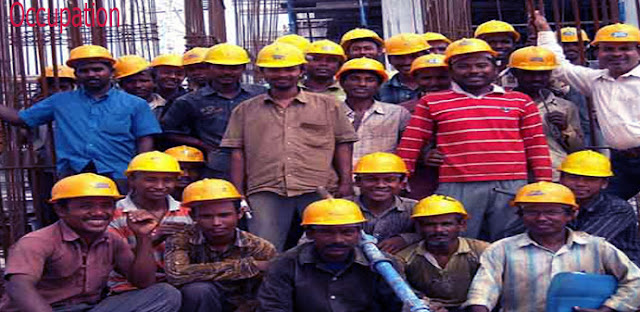






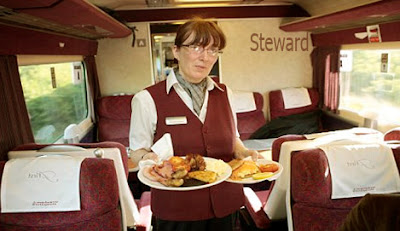




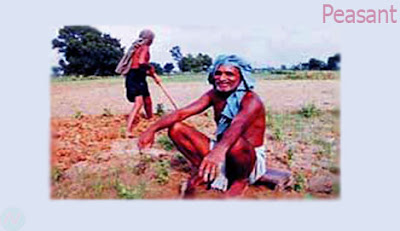












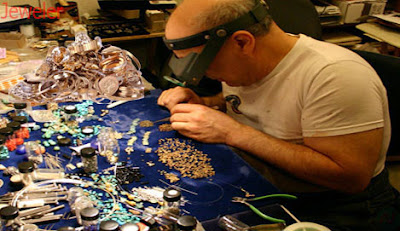
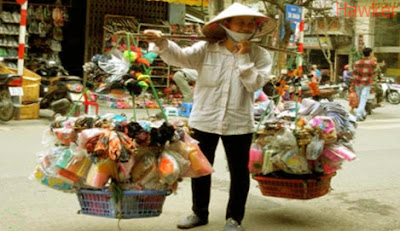
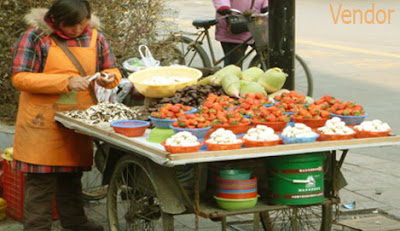











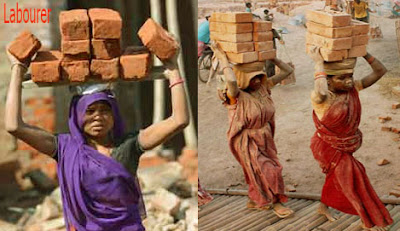

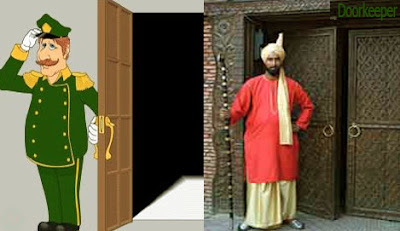


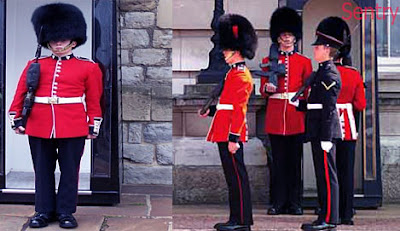















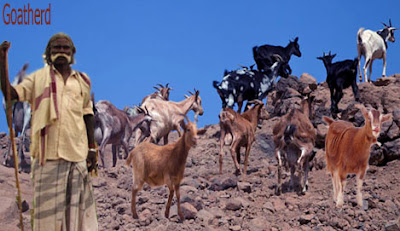


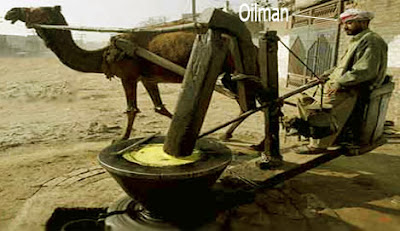
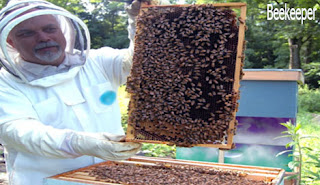

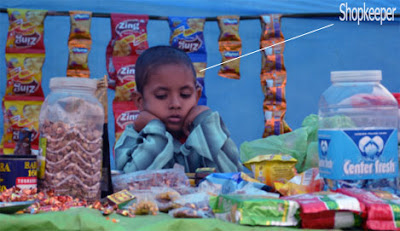
































No comments